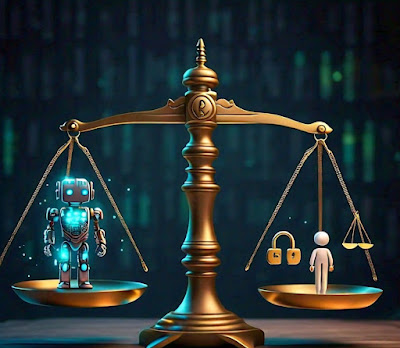The Future of Artificial Intelligence: How AI is Revolutionizing Our World
Artificial Intelligence (AI) has been one of the most exciting and transformative technologies of the 21st century. From virtual assistants like Siri and Alexa to self-driving cars and predictive algorithms, AI is rapidly becoming a part of our everyday lives. But what does the future hold for this cutting-edge technology? In this blog, we’ll explore how AI is revolutionizing industries, the latest advancements, and what we can expect in the future.
1. What is Artificial Intelligence?
Artificial Intelligence refers to machines or software that mimic human intelligence, enabling them to learn, reason, and perform tasks without human intervention. AI systems use data, algorithms, and computing power to analyze patterns, make decisions, and solve problems, often faster and more efficiently than humans.
2. AI in Healthcare: Saving Lives with Precision
The healthcare industry is undergoing a massive transformation thanks to AI. From diagnosing diseases earlier to personalizing treatment plans, AI is enabling doctors and medical professionals to deliver more precise, faster, and safer care. AI-powered tools, like medical imaging analysis and predictive diagnostics, are helping save lives by detecting conditions like cancer, heart disease, and diabetes in their early stages.
. AI in diagnostics: Machine learning algorithms are being used to analyze medical images, detect abnormalities, and diagnose conditions more accurately than traditional methods.
. Robotics in surgery: AI-powered robotic systems assist surgeons in performing complex procedures with precision, reducing the risk of complications.
3. AI in Transportation: The Rise of Autonomous Vehicles
One of the most exciting applications of AI is in the automotive industry, where autonomous vehicles (self-driving cars) are poised to reshape how we travel. AI systems in these vehicles are capable of navigating roads, identifying obstacles, and making real-time decisions to ensure safety and efficiency. Major companies like Tesla, Google’s Waymo, and Uber are heavily investing in AI-powered vehicles to bring about a revolution in transportation.
. Traffic management: AI can analyze traffic patterns, reduce congestion, and optimize routes to improve urban mobility.
. Autonomous delivery: Drones and AI-powered robots are already being used to deliver packages, promising faster and more efficient delivery systems.
4. AI in Entertainment: Personalized Content and Creativity
AI is changing how we consume entertainment, from recommending shows and music on platforms like Netflix and Spotify, to creating art and even writing scripts. With AI-powered algorithms analyzing user preferences, these platforms offer personalized recommendations that keep users engaged. Additionally, AI is venturing into the creative realm, with AI-generated music, paintings, and films.
. Recommendation systems: AI algorithms analyze viewing and listening habits to suggest personalized content.
. AI in film and media: Directors are now using AI to help with scriptwriting, editing, and even special effects, blending creativity with technology.
5. AI in Business: Streamlining Operations and Customer Service
AI is streamlining business operations across industries by automating repetitive tasks, enhancing decision-making, and improving customer service. Chatbots, virtual assistants, and predictive analytics are just a few examples of how AI is helping companies operate more efficiently.
. AI in customer service: Virtual assistants and AI-powered chatbots are handling customer inquiries 24/7, improving service and reducing costs.
. Business analytics: AI analyzes vast amounts of data to offer insights, helping businesses make informed decisions faster and more accurately.
6. The Ethical Considerations of AI
While AI presents numerous benefits, it also raises important ethical questions. Concerns about privacy, job displacement, and AI bias are critical challenges that need to be addressed as AI continues to evolve. Governments, corporations, and tech developers are working on creating ethical guidelines and regulations to ensure AI is used responsibly.
. AI and privacy: With AI analyzing large amounts of data, questions arise about how that data is collected, stored, and used.
. Job automation: While AI creates new opportunities, it also has the potential to replace certain jobs, especially those involving repetitive tasks.
Conclusion: The Future of AI
As AI continues to advance, it will play an even bigger role in shaping industries, improving lives, and revolutionizing the way we interact with the world. The future of AI is bright, filled with potential breakthroughs in healthcare, transportation, entertainment, and beyond. However, it’s important to approach this future responsibly, ensuring that AI is used ethically and sustainably.










Comments
Post a Comment